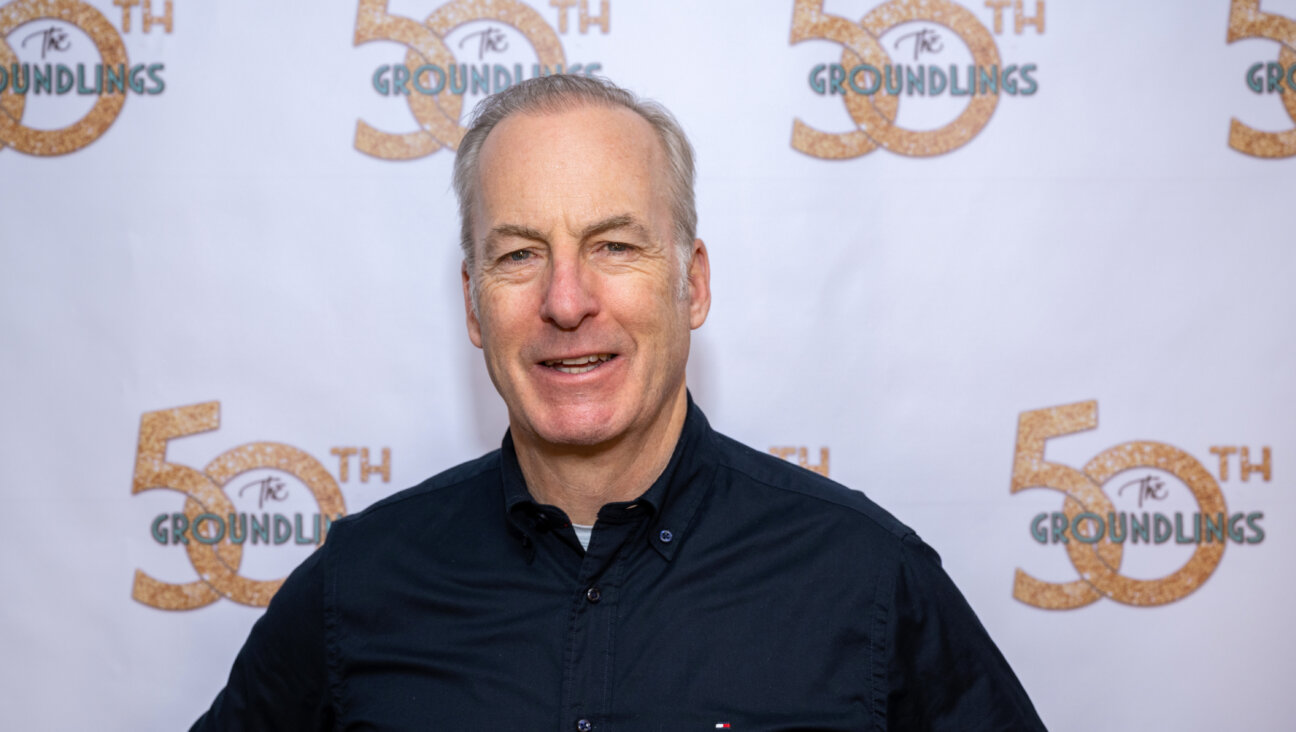On Patrick Stewart’s 80th birthday, his secret Jewish history

Patrick Stewart Image by Getty Images
Actor Patrick Stewart, who turns 80 on Monday, July 13, 2020, isn’t Jewish. But that didn’t stop him from assuming — incorrectly — for well over half his life that a mohel, or someone with a very sharp implement, had removed his foreskin shortly after birth.
On a TV talk show in 2017, Stewart revealed that his mother had told him at a young age that he had been circumcised, and that despite evidence to the contrary, he had just assumed she was telling the truth. It wasn’t until late in life, when Stewart casually referred to having been circumcised to his wife, that he was disabused of the notion.
Even his wife’s word wasn’t enough. As Stewart told it, he happened to have a doctor’s visit scheduled the morning after their disagreement over the presence or absence of that extra fold of flesh. He asked the doctor for a second opinion that would settle the matter. As Stewart recounted to English talk-show host Graham Norton, he said to the doctor, “By the way, my wife and I have had a little disagreement — I am circumcised, aren’t I?” To which the doctor replied after examining Stewart’s member closely, “Not! I am Jewish, and I definitely know the difference!”
Of course there is now and was then a lot more to being Jewish than the sacrifice of a bit of flesh from the tip of the male sexual organ, and being Jewish or not was never the issue. But Stewart, who is best known for portraying Captain Jean-Luc Picard in “Star Trek: The Next Generation” and Professor Charles Xavier in the “X-Men” series of superhero films, has nevertheless enjoyed playing Jewish roles throughout a distinguished acting career that has garnered him a closet-full of awards — including Olivier, Golden Globe, Emmy, Screen Actors Guild, and Saturn award nominations – as well as being involved with Israeli and Jewish-themed projects.
In particular, Stewart has had a lifelong relationship with playing the role of Shylock in Shakespeare’s “Merchant of Venice” — which he assayed for the first time at age 12 for a school assignment — and over time has developed strong ideas and opinions about the character and the play itself. In an interview with the UK newspaper the Guardian in 2016, Stewart took himself to task for overacting when he played Shylock in his mid-20s in a production at Bristol Old Vic. Stewart said he was “ridiculously young for the part. It was an awful experience – everyone else was very good, but I knew I was wrongly cast. I went for melodrama. If there was rage, I raged like a tempest; if Shylock was mean, I was pure evil. Terrible, looking back. I should have been arrested for overacting. If not for racism.”
Stewart played Shylock again at the Royal Shakespeare Company in 1978. This time around, he said, he realized that “one of the most powerful things in the play is the way that, even though Shylock isn’t particularly sympathetic, you end up sympathizing with him.” Stewart was slated to play the role again in a feature film in the early 2000s, but just before filming was to begin on the project, which was to transfer the setting of the original from 16th-century Venice to modern-day Las Vegas, funding was withdrawn. As for whether or not the play itself is antisemitic, Stewart said, “The Merchant contains antisemitism – terrible antisemitism – but it’s not attacking Jews. ‘Hath not a Jew eyes?’ is one of the great humanistic lines. Shakespeare is making a comment about prejudice. You can come into that play as a racist, but it’s hard to leave it thinking the same way.”
Stewart has often worked as a voice actor, and his roles have included Pharaoh Seti in the animated feature film “The Prince of Egypt” about Moses. Seti becomes Moses’s adoptive father when his wife, Queen Tuya, finds the baby Moses in a basket in a river. Stewart also lent his voice to “My Memory of Us,” which is described as “a Holocaust video game.” It’s not quite as tasteless as it sounds – young players learn about the Shoah by assuming the roles of children in a Jewish ghetto in Poland during the Nazi occupation. Stewart winds up narrating the story to the children that appear in the game and therefore also to real-life players.
In 2010, Judd Apatow directed a video PSA for the American Jewish World Service, featuring various celebrities extolling the organization’s anti-poverty and human-rights work. Stewart appeared alongside the likes of Lindsay Lohan, Tracy Morgan, Sarah Silverman, and Don Johnson, saying, “Although I’m not even close to being Jewish, I support the American Jewish World Service.” In 2012, Stewart played the role of an eccentric British peer in the Israeli film, “Hunting Elephants,” filmed on location in Jerusalem and Tel Aviv, a year after having first visited the Jewish state.
One of the more curious Jewish-related episodes in Stewart’s life was when his wife, Sunny Ozell, shared her love of a pit bull dog that she and Stewart were fostering in a social media post in 2017 showing her fondling the dog’s head with a caption that read, “What is this? What is this punim?”, using the Yiddish word for “face” that is a variant on the original Hebrew. While it’s not clear if Ozell is Jewish or not – she was, after all, the one who told her husband that his phallus was treyf – her usage of punim in this manner displays a familiarity with the idiom as it was mostly used by Jewish grandmothers about their grandchildren 50 to 60 years ago or so.
Stewart once confessed in an interview with American Theatre magazine that he wishes he were Emanuel Ax, the Polish-Jewish pianist widely considered to be one of the greatest soloists on his instrument in the world. As Stewart put it, “From time to time, I have fantasies of becoming a concert pianist. I’ve been lucky enough through the years to work very closely with the great Emanuel Ax. I’ve said to him that if I could switch places with anyone it would be with him.”
I think there are plenty of “Star Trek” and “X-Men” fans who are happy with who and what Stewart turned out to be.
Seth Rogovoy is a contributing editor at the Forward. He frequently mines popular culture for hidden Jewish stories.
A message from our Publisher & CEO Rachel Fishman Feddersen

I hope you appreciated this article. Before you go, I’d like to ask you to please support the Forward’s award-winning, nonprofit journalism during this critical time.
We’ve set a goal to raise $260,000 by December 31. That’s an ambitious goal, but one that will give us the resources we need to invest in the high quality news, opinion, analysis and cultural coverage that isn’t available anywhere else.
If you feel inspired to make an impact, now is the time to give something back. Join us as a member at your most generous level.
— Rachel Fishman Feddersen, Publisher and CEO
























